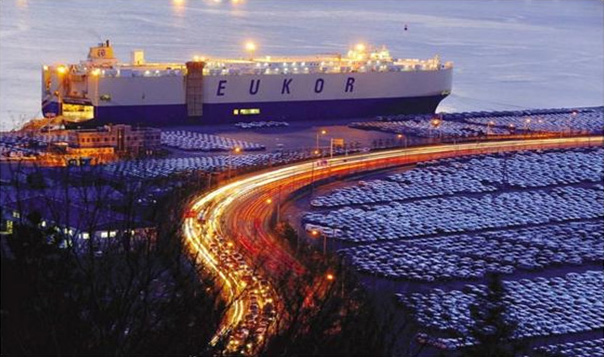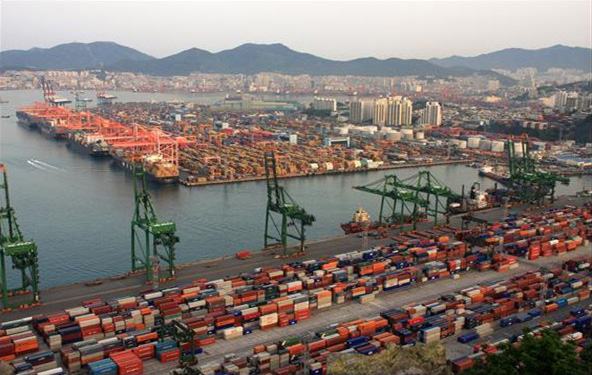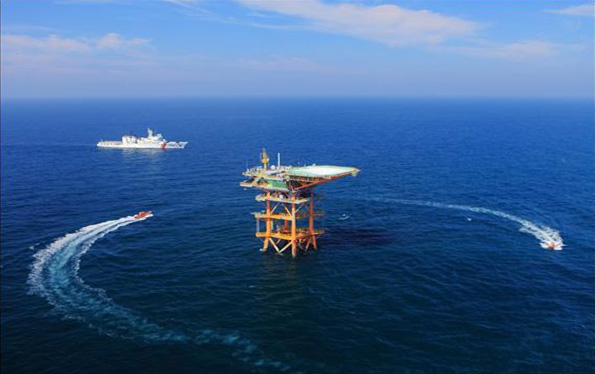
Underwater archaeology is a field of study that searches for and identifies underwater ruins or relics to better understand history and culture of human civilization. As underwater archaeology takes place underwater, it significantly differs with land archaeology in terms of observation environment and method.
Today, underwater archaeology is finally finding its place as a field of study. The term has come to encompass all forms of underwater archeology: underwater, maritime, marine, deepwater, submarine, nautical, and ship archaeology.

Korea was relatively late in exploring the sea as our ancestors lived by avoiding the sea. For that reason, Korea has remained in the periphery of history. However, since the 1960s sea-oriented economic development has helped Korea to become a maritime superpower in a relatively short period of time.
The sea is like a lifeline to Korea. Due to the division of the Korean peninsula, South Korea can be considered an island-state because the only way for it to communicate with the rest of the world is via the sea. 99% of our transported goods are through the sea, and in the case of raw materials for the basic industry such as foods, oil, and iron ore, most of these goods are imported via sea routes. Although the figures may differ from one standard to another, today, Korea is ranked top ten in sea power, while also ranking 1st in shipbuilding, 6th in ship capacity, 7th in number of container ships, 6th in transported goods, and 12th in production of marine products.
On the other side of Korea's rapid growth in sea power is the location factor. As a country bounded on three sides by the sea, it could be said that marine adaptability is embedded in the DNA of Koreans as citizens of a marine-state.

Geographically, the Korean peninsula is located in the hub that could be considered a strategic pathway in Northeast Asia. It also has the potential to tap into advantages of both continent and sea. The Korean peninsula is a bridge connecting the sea with land, and from the side of the land, a starting point to advance to sea. It connects to China, Russia, and Europe on land, and has geographic and economic conditions to progress infinitely to anywhere in the world through the sea.
Furthermore, there is Japan, a technological giant and the world's second economy, to the south east, China, world's factory, the greatest potential market and a fast-growing economic powerhouse, to the west, and Russia which revived as an energy power in the 21st century, to the north. Since Korea is located among these countries, it is said to be the economic hub of the northeast Asia. In particular, the northeastern region has been the most active area for the past three decades, growing to stand shoulder-to-shoulder with North America and Europe with its fast economic growth.
What deserves particular attention is that as a close economic partner to China, Korea placed 3rd in GDP and surpassed the US to become the world's greatest trading country.

However, the potential to explore the sea remains infinite and Korea's sea power still has potential to develop. The possibility of developing territorial waters and the continental shelf is endless. Coastal regions that have favorable conditions for ports and tourist sites, as well as remote island regions remain largely unexplored.
Korea is a maritime state, not a continental state. It should be kept in mind that history prospered when Koreans entered the sea and fell back when Korean focused on the inland. Today, Korea should take full advantage of its blessed marine conditions to become a trading state as well as a beautiful and attractive country. By doing so, Korea will become an advanced country that leads the culture and economy of the world.
※ The texts were written based on the outcome of "Development of Ocean Education Textbook" and "Development of Contents for Ocean Education Textbook" projects conducted by the Korea Maritime Foundation in 2010 and 2011.